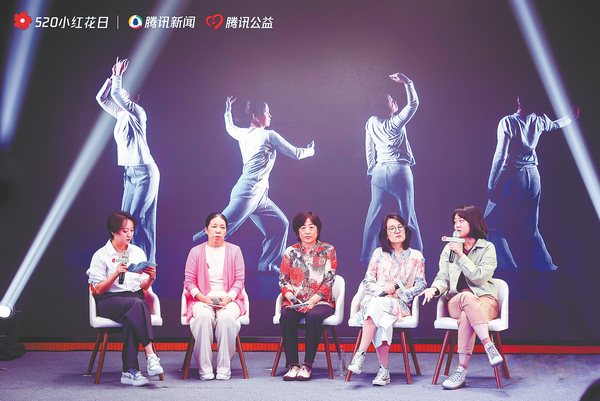

Despite enduring immense grief, economic pressure compelled her to return to Beijing for work after the funeral. Over the following months, struggling with a sense of helplessness, she coped by jogging and drinking — until she joined the Hongyan center and found comfort in dancing Fen Shen.
For Tan Qirong, the other dancer and domestic worker joining the Tencent event, the dance also served as a hub to ease her emotional pain. Previously working at a factory in Langfang, Hebei province, Tan, a native from Mianyang in Sichuan province, switched careers from being a delivery person to a domestic worker in the Chinese capital in 2019.
"I was working in Beijing when my father passed away, but my family didn't inform me until six months later. It was a painful experience that I kept buried deep inside. However, during the rehearsal of the dance, I finally felt like I could release my emotions and find peace," says Tan.
According to statistics from the Ministry of Commerce, as of 2021, China had an estimated 37.6 million domestic workers, with most of them being rural females in cities engaged in babysitting or taking care of the elderly, as reported by Southern Weekly, a Guangzhou-based newspaper.
Yan Weixu, the producer of the performance, believes that domestic workers are "invisible residents "of cities, and she hopes that art can help them boost their confidence and enable them to voice their needs and requirements.
Contact the writer at xufan@chinadaily.com.cn